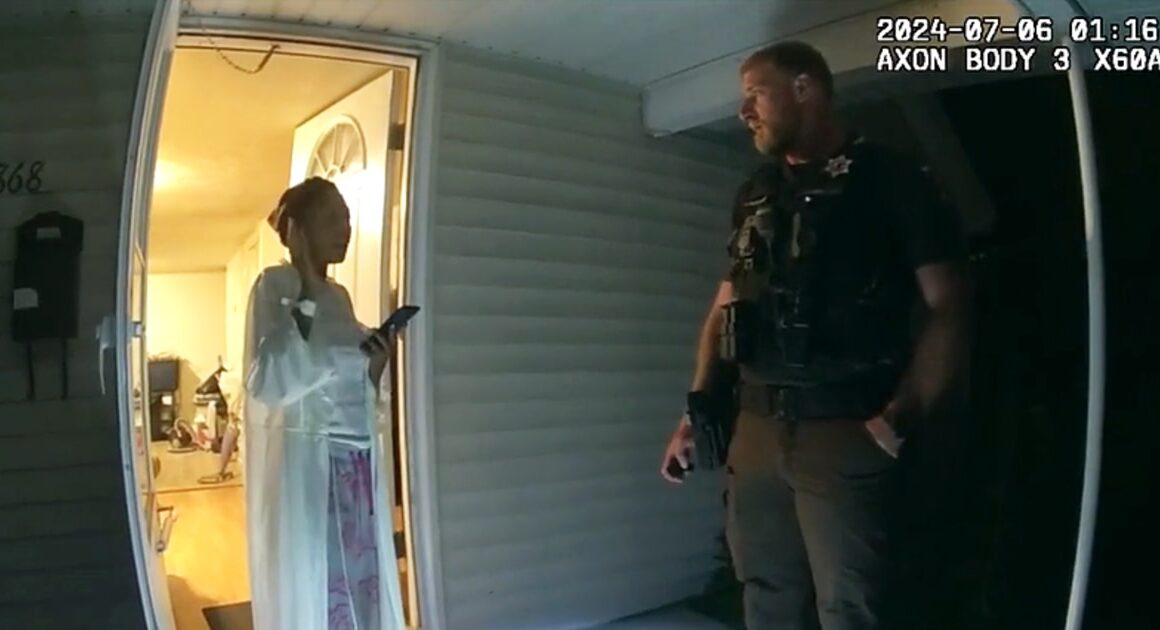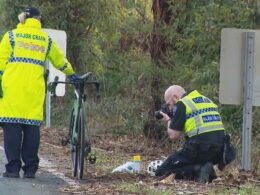In the nearly three weeks since an Illinois deputy sheriff was charged with murder after fatally shooting Sonya Massey, observers have questioned how and why the officer — who had worked for six law enforcement agencies in four years — kept on getting hired.
Sean Grayson’s personnel files show a string of apparent red flags: He admitted to having two DUI arrests and being discharged from the Army for “misconduct, (serious offense).” After one of the DUIs, a handgun was found in the car he was driving. In a previous law enforcement job, he had been reprimanded for inaccuracies in his police reports, failure to follow orders from a senior leader and a perceived lack of integrity, NBC News previously reported.
On Wednesday, Grayson’s most recent employer, the Sangamon County Sheriff’s Office, posted more files, which showed that although he scored low on a psychological cognitive assessment, Thomas Campion, a police psychologist, wrote Grayson was suitable for the job. Two other departments noted that he needed more training.
In an interview with “NBC Nightly News,” Sangamon County Sheriff Jack Campbell defended his hiring of Grayson.
“He was certified six times to work as a police officer in Illinois,” he said. “There was nothing in his past that would have given me an idea that he would snap the way he did.”
According to an NBC News review of police hiring laws in Illinois, Grayson’s hiring did not appear to have violated state or local police hiring policies. And an NBC News review of hiring practices around the country shows that there is a patchwork of hiring standards that vary from state to state and from community to community.
Experts say the hiring standards in many small law enforcement agencies are often lower than those of large city agencies. Nearly 85% of the country’s 18,000 state and local police agencies employ fewer than 50 officers, according to data from the U.S. Justice Department. And there are no national laws governing how state and local police agencies, including sheriff’s offices, hire and vet their applicants.
Compounding the problem is a nationwide police shortage fueled by the police killing of George Floyd and the wave of protests, police retirements and drop in applicants that followed. The shortage has forced many chiefs and sheriffs to choose from lower-quality applicants.
Better screening of applicants, according to law enforcement experts, can prevent future tragedies.
“There is a lot of importance in doing proper vetting on the front end,” said Michael Bricker, a police psychologist whose firm evaluates candidates for more than 500 law enforcement agencies, including the Chicago Police Department. “That’s the cheaper alternative because when they get a problem employee that ends up using excessive force, or in worst-case situations like this horrible thing that happened with Sonya, that is a much bigger problem.”
Experts who conduct background checks of applicants say the number of high-quality job candidates is declining.
“In some areas, you’re really dealing with, Who is the best of the worst?” said Dr. Matt Guller, a psychologist who screens applicants for more than 600 law enforcement agencies from the New Jersey State Police to small town sheriff’s offices, told NBC News. “A lot of these remote agencies are really struggling to get officers. There’s such negativity toward policing that your college educated go-getters are shying away from it.”
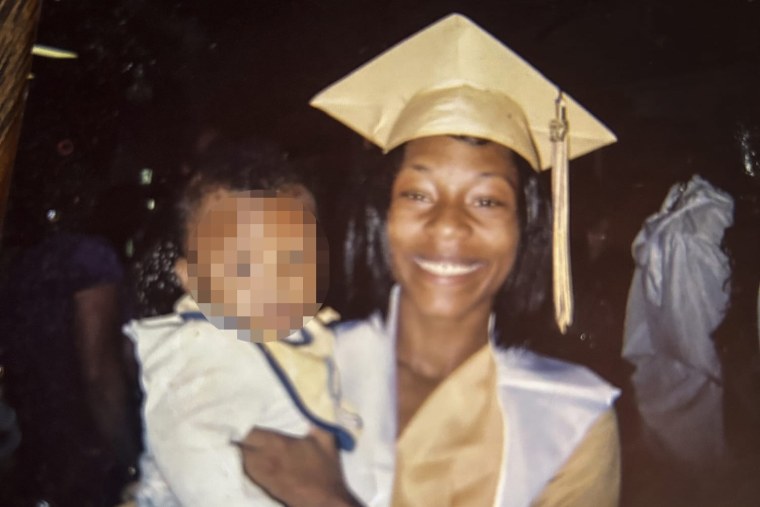
An alarming range of vetting
The spectrum of state laws for vetting police applicants varies significantly, experts say. On one end sits California, which officials described as the “gold standard” due to its extensive requirements. Totaling hundreds of pages, the rules require the state’s more than 500 law enforcement agencies to screen applicants for qualities such as: “Conscientiousness/Dependability,” “Tolerance,” “Integrity/Ethics,” “Social Competence” and “Emotional Regulation/Stress.”
California also requires all applicants to sit through a psychological evaluation and be screened for “good moral character.”
Ed Obayashi, a California deputy sheriff and training expert who advises police agencies across the state, said California’s strict hiring standards are largely due to a mix of policing leaders who push for reforms along with lawmakers and residents.
“That is actually a good thing for society,” Obayashi said.
Illinois sits on the other end of the spectrum when it comes to vetting, according to interviews with police background check specialists. Unlike California, Illinois doesn’t require psychological testing or have a standardized background check process, leaving police chiefs and sheriffs with wide latitude when it comes to vetting their job candidates.
Under the Illinois law, which is a few paragraphs long compared to California’s hiring standards, which are spread across at least two thick handbooks, applicants are allowed to have a history of certain misdemeanor convictions, including DUIs, as Grayson did, along with low-level offenses such as burglary and gambling.
While California, by comparison, does allow applicants to have DUIs and other misdemeanors on their record, background investigators are instructed to flag any “illegal or immoral activities,” including “not yielding to temptations of bribes” and admitting to any crimes involving children. Police agencies in California are prohibited from hiring applicants who’ve pleaded down a charge from a felony to a misdemeanor-level crime within the last 10 years.
In Illinois, in addition to its state law, city councils and county commissions can also set their own stricter hiring rules.
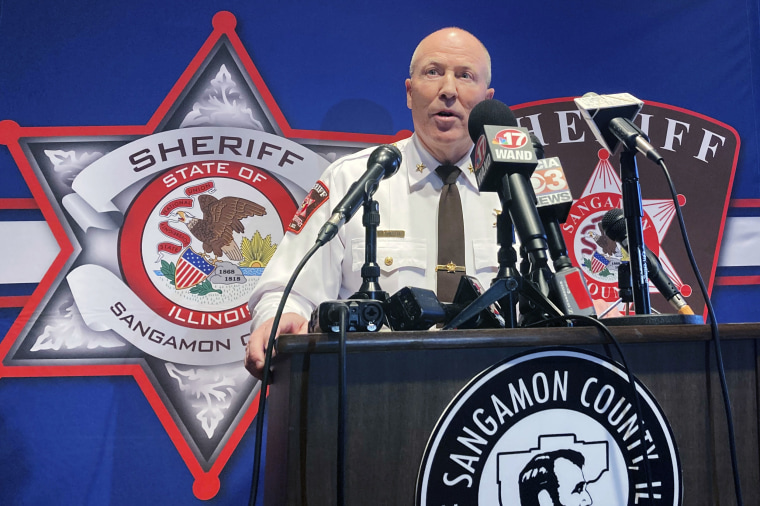
Grayson’s most recent employer, the Sangamon County Sheriff’s Office, says applicants may be required to pass a psychological evaluation. Campion, the police psychologist, ruled he was supporting Grayson’s hire despite finding he scored low on a cognitive assessment, writing: “He knows he can move too fast at times. He needs to slow down to make good decisions.”
Nearly a year and a half after Campion’s review, Grayson fatally shot Massey after he ordered her to drop a pot of boiling water.
Campion and his firm have been the subject of past scrutiny. The Minneapolis Police Department stopped working with Campion in 2006 after police reform advocates complained that he exhibited racial bias toward minority candidates and that he was affiliated with a Christian nonprofit that promoted heterosexual marriage. Campion sued in federal court and agreed to settle for an unknown amount, court papers show. Campion did not return a request for comment.
In California, police psychologists use a 280-page guidebook prepared by the state’s police standards commission that says applicants have to sit through a clinical interview along with multiple written psychological exams. They can include personality tests, questionnaires and past employment assessments.
It’s unclear how in-depth the interview processes were for Grayson before he joined his five previous agencies. The Logan County Sheriff’s Office, where Grayson worked before joining the Sangamon County Sheriff’s Office, had him fill out a 195-question application, where he admitted to the two DUI arrests and shoplifting as well as buying marijuana in high school.
The agency’s hiring guidelines state that applicants should “be of sound mind and body, be of good moral character” and “shall have passed mental, physical, and other examinations.”
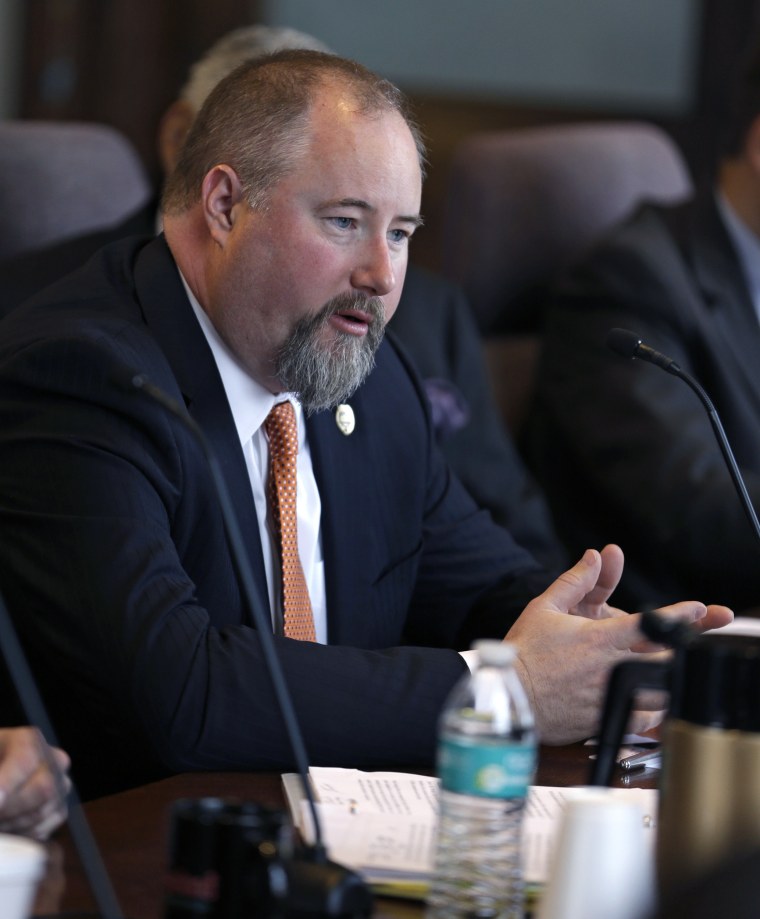
Sean Smoot, chairman of the Illinois Law Enforcement Training and Standards Board, the state agency that oversees training standards for the state’s nearly 850 policing agencies, said disparity in vetting policies is common.
“This is a national problem. This is not unique to the state of Illinois,” said Smoot, who was part of President Barack Obama’s Task Force on 21st Century Policing. “You’ve got departments who do a really thorough, excellent job at them. But then you have other departments that don’t for a myriad of reasons. Some of which might be, they don’t care, but probably more likely is they don’t have the resources.”
Two of the largest police agencies in Illinois are more thorough. A spokesman for the Chicago Police Department confirmed that its officers undergo a battery of tests including psychological and wellness exams along with a polygraph test. The Illinois State Police also requires its applicants to sit through mental health testing.
Bricker, the Chicago police psychologist, said he launched his practice in 2013 after seeing there were few psychologists in the state who were thoroughly vetting police candidates.
“We’re not just doing a second background investigation in the psych process,” Bricker said. “The full purpose of our role is to really do an analysis, a psychological analysis, of the complete person.”
Impact of police shortages and small departments
Guller, the psychologist who vets applicants primarily for East Coast policing agencies, warned that chiefs and sheriffs should not skimp on vetting to fill positions. Guller, a principal psychologist with the the Institute for Forensic Psychology, named a list of best practices that police leaders should follow.
Using the California hiring standards as a model, Guller tells his clients to send seasoned investigators out to interview a person’s former romantic partners, neighbors, employers and even patrons at their favorite bars.
“That’s the stuff where you get to know a person,” Guller said.
James Allard, the sheriff in Steuben County New York, south of Buffalo, uses Guller to vet his applicants despite heading a rural agency. Allard pointed out that after the murder of George Floyd, New York state changed its police hiring laws in 2021. The state now requires agencies to make applicants sit through a battery of psychological screenings, including written exams, an oral interview, and assessments for psychopathological disorders, negative personality traits and substance abuse issues.
Allard also sends investigators out to inspect an applicant’s home and car, as well as interview former romantic partners, employers and work colleagues. He also requires candidates to fill out a 35-page “All About Me Book” and sit before a five-person panel for questioning.
“I am a big believer that the size of the agency doesn’t matter. It’s whether or not you establish best practices and adhere to them, said Allard, who employs about 165 officers — a mix of jail guards, road patrol and school safety officers. “If you hire the wrong person, you’re going to spend so much more time and effort to get rid of them than you will in five background investigations.”
Although New York state law doesn’t mandate it, Allard and an increasing number of sheriffs across rural areas are using polygraph tests to determine a candidate’s integrity. Some experts have warned that polygraph testing can harm minority candidates who feel unfairly targeted by the way the polygraph questions are administered.
Eric Hurd, a former polygraph expert with the New York State Police who now polygraphs deputy sheriff candidates in western New York, said he wouldn’t necessarily tell an agency not to hire a person for being anxious during a test.
“The polygraph is a powerful tool that’s utilized to obtain information that wouldn’t otherwise be obtained, that could be easily concealed by an applicant,” Hurd said.
It costs an agency about $300 to $600 to conduct a polygraph, Hurd added.
‘Illinois is definitely not California’
The American Psychological Association published a research paper in 2022 detailing the lack of uniform psychological screening mandates across the country.
The 12-page study, co-authored by David Corey, a police psychologist based in Oregon, found that while 37 states do have some sort of psychological evaluation requirement, 13 states — including Illinois — do not. Even for states that listed the mandate, there was no uniformity in what psychological qualifications to use, nor what types of written tests were given or if oral interviews were held.
Smoot, the chairman of the Illinois police standards commission, said prior to Massey’s slaying, there were talks of reforming the state’s police hiring rules to include some mandated background checks, but unlike in California or New York, psychological testing wasn’t discussed.
“Illinois is definitely not California,” Smoot said. “Chiefs and sheriffs have been very resistant to requirements with regard to background checks.”
CORRECTION (Aug. 2, 2024, 1:40 a.m. ET): A previous version of this article misstated some of the circumstances of Massey’s shooting. A sheriff’s deputy’s body-worn camera showed that she let go of the pot of boiling water when she ducked. It does not show that she refused an order to drop the pot.
,




